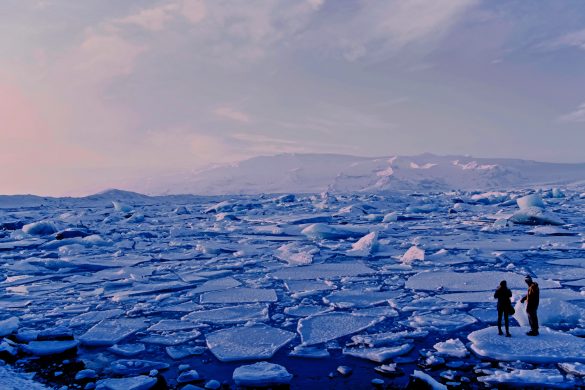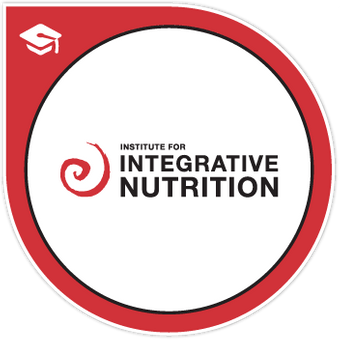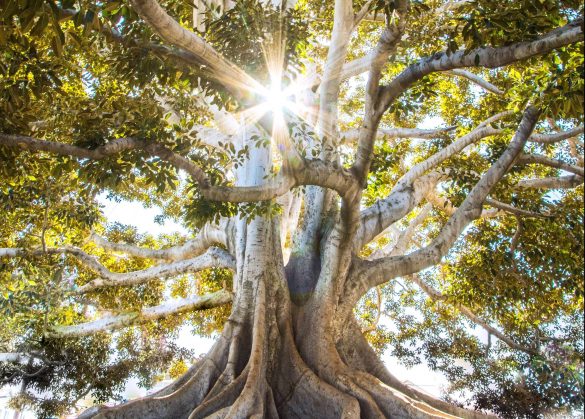Hello, my friends, and welcome back to another article on the benefits of a plant-based nutrition.
This topic is very near to my heart as you’re probably familiar with my fascination and deep love for nature. The environment was one of the biggest and primary reasons why I chose to live fully plant-based back in 2013. As many vegans feel this deep compassion and love towards animals (what I truly identify with), however, I do feel this strong connection to Mother Earth. My heart is bleeding when I see our beautiful planet suffering through the burden of industrialization. It is not only about our society getting sicker from environmental pollution and the polluted (toxic) food we consume nowadays; but it is also about the long-term future, the generations to come. If you look at nature, it gives us everything we need: air to breathe, water to drink, food to eat, sunshine to thrive. You don’t have to be kind in order to get kissed by the sun; you don’t have to work hard in order to get air to breathe – isn’t that real unconditional love? The sun rises every single day, air is there in abundance, nature is – without any long-term interruptions – in perfect balance and order.
“Nature is painting for us, day after day,
pictures of infinite beauty.”
(John Ruskin)
The environment is in fact extremely resilient, however, there was a time when humans started to exploit nature’s abundance. We are taking more from nature than it can provide and the consequences are insane! Back in 2007, when I was in my last year of high school, we watched Al Gore’s documentary “An Inconvenient Truth”. This was the first time I felt deeply devastated by the environmental burden that’s going on right now. The term climate change hasn’t been on my radar before I was 18. However, it wasn’t until 2013 that I connected the dots between food consumption and environmental health.
The purpose of this article is to raise awareness and empower you to make conscious decisions – every small step towards more sustainability counts. It is not about living a perfect vegan, zero-waste, plastic-free life. No, it is about becoming aware of how you can contribute to a more sustainable planet by taking baby steps on a day to day basis!
“The Earth is what we all have in common.”
(Wendell Berry)
~ Food choices & the environment ~

Veganism has become increasingly popular nowadays. Besides impressive health benefits as well as the ethical aspect – which is by the way the most common reason why people choose to go vegan – a plant-based diet has major environmental benefits. By reducing livestock farming, our planet can literally “take a breath” and is able to become more balanced again. Water pollution, deforestation, species extinction, greenhouse gas emission and therefore climate change have been the mostly reported effects animal agriculture has on our planet. The breadth of the impact of livestock farming has been largely underappreciated. Eventually, all of it comes at a substantial cost to the environmental health as well as our own health.
The global food system has been centered around animal agriculture, a major result of industrialization and globalization. Animal agriculture is terribly inefficient: enormous amounts of resources, such as water and crops, are wasted into a system that hurts and kills thousands of innocent lives.
I have a few facts and numbers to give you a basic idea of what I’m talking about:
- 15.415 l of water is used to produce 1 kg of beef whereas 322 l of water is needed to produce 1 kg of vegetables (Mekonnen et Hoekstra, 2010).
- One calorie of food energy from beef requires 40 calories of fossil fuel energy whereas one calorie of grain takes only 2.2 calories of fossil fuel energy (Pimentel et Pimentel, 2003).
- 70 % of the grains produced in the U.S. are fed to farmed animals.
- 16 kg of grains are needed to produce 1 kg of meat. Those 16 kg of grains could go directly into human nutrition.
- It is estimated that 1 lb of beef is equivalent to 200 square feet of destroyed rainforest (RainforestConcern, 2019).
- It is estimated that every second, an area of rainforest equivalent to a football field is cleared to rear and graze animals – thus, animal agriculture is the largest contributing factor in habitat loss and extinction (Oppenlander, 2012).
- Every year, about 18 hectares of forest – an area the size of England and Wales – is cleared (RainforestConcern, 2019).
- It is estimated that meat production requires 3 times more land than the production of plant foods (The Vegan Society, 2019).
- Cattle farming is said to be responsible for 63 % of the Amazon rainforest destruction (Greenpeace, 2019). It is destroyed to allow the cultivation of (genetically modified) soy production to feed the livestock.
~ Global warming – an ongoing issue? ~

As I mentioned in the introduction, I personally was introduced to the issue of global warming in the first place as my awareness for environmental health has arisen. When it comes to climate change, we usually think of the fossil fuel industry and emissions from cars and planes. However, there’s a major piece missing which affects the planet’s climate even more: animal agriculture.
To give you a short introduction – there are three main gases responsible for global warming:
- Carbon dioxide comes from burning fossil fuels (oil, gasoline). It takes about 11 times as much fossil fuel to produce a calorie of animal protein than it does to produce a calorie of plant-based protein.
- Methane comes directly from the (farming) animals and it’s around 20-25 times more effective than carbon dioxide in terms of global warming. The methane gas is produced by animals during the process of digestion, so animal agriculture is the single largest source of methane emissions.
- Nitrous oxide is even more potent as a greenhouse gas than the other two. It’s almost 300 times more effective than carbon dioxide. According to the United Nations, the animal industry (meat, eggs, dairy) is responsible for global nitrous oxide emissions by 65 % (HSI, 2011).
On a global scale, animal agriculture contributes to a greater extend to greenhouse gas production than all the transportation systems combined. The United Nation says that it is vital for us as a society to shift toward a plant-based diet in order to prevent worst effects of climate change.
I also want to quote a paragraph from a recent report in “The Lancet”, stated by Walter Willet, MD (2019):
“Many studies have assessed environmental effects of various diets, with most finding decreasing effects with increased replacement of animal source foods with plant-based foods. Vegan and vegetarian diets were associated with the greatest reductions in greenhouse-gas emissions and land use.”

So, what are the main impacts of climate change? – The above mentioned greenhouse gases contribute to raise global temperatures which may eventually lead to:
- melting glaciers,
- rise in sea levels,
- flooding,
- heatwaves and droughts, and
- increasing tornados.
As the world warms, the entire ecosystems will move. These consequences go hand in hand with threatening farming conditions (food scarcity), loss of human’s and animal’s livelihood, and forest degradation – to name just a few. As the forest diminishes, our eco-system is in horrific danger, for trees are the lungs of our planet; they keep our planet in balance.
~ Disconnection & (Re)connection with nature ~

Nature – We usually tend to take it for granted. Especially in the western world, where people live in buildings and spend most time indoors, nature is seen as something external that perhaps can be visited, but nothing that is really essential for our existence, health and connection. This disconnected relationship with nature has led to vast environmental issues as well as to physical, mental and spiritual problems for most people. We have literally divorced ourselves from any significant relationship with planet earth. Deforestation, water and air pollution, global warming – we refer to those environmental issues as if they were outside of us, marginal, something that may happen in the future. However, we’re all sitting in the exact same boat while this ecological catastrophe is happening right now.
What I can tell by my personal story is that the more plant-based whole foods I started putting into my body, the stronger my connection to nature and everything around me became. I started feeling an intuitive urge to go outside as much as I possibly can, to move my body, to breathe in the air, to sit down on the grass, to even hug trees. This urge grew by the years, as for now, being in nature is like a spiritual practice for myself. It’s the time I feel mostly connected!

“I feel my Highest Self by putting my bare feet on the sand,
being kissed by the sun,
immersing myself in the ocean,
walking in the silence of the forest,
lying on the grass, and observing the clouds in the sky.
I feel vibrant by eating fruits and other plant-based whole foods.”
I always realize: Nature is essential to feel fully alive.”
We all live in this world, we are all a piece of the entire puzzle – the big picture. Time spent in nature connects us to each other and to the greater world, the planet, Mother earth. We cannot disconnect ourselves from the planet. We are part of nature. When you go out in nature, you’ll realize that everything is connected – it is one big eco-system in which separation does not exist. As the macrocosm, so is the microcosm. As the earth, so is the body. By destroying the environment, we’re destroying our own existence at the same time … without being aware of it!
We’re only temporary inhabitants of this land, and it is not our right to own or even exploit it. Nature gives us everything we need in order to survive, to keep our bodies healthy. Thus, I invite you to respect and care for this gift. I guess it may start with a shift in awareness to appreciate what we have, because everything we do have – no matter how little – is enough. Ultimately, the less you have (own), the richer you become…
~ Conclusion: Food and the environment ~

There’s a thing happening that no one wants to talk about. It might not be very obvious to most people. However, deep down we all know that there’s something going wrong with our health as well as the health of our planet. I feel like there’s an awareness gap – a mental separation of what we’re actually immersed in right now.
“Ignoring doesn’t solve problems.
Looking into it does.”
Plant-based diets are a more sustainable way of eating, because it needs substantially less natural resources and less taxing on the environment to grow plant foods compared to animal products. The world’s demographic explosion and the increase in the appetite for animal foods render the food system unsustainable. What we need is not judging or even fighting against people’s belief systems, but it is compassion in order to survive as a species. Let’s do this together by increasing awareness and making little changes in our day to day life. Just by incorporating a little more plant-based foods into your diet, you will support the health of our planet as well as your own health – it’s a win-win situation!
Wherever you are in your own journey, I invite you to take one little action step this week to get in touch with nature: Whether it’s through the food you eat, a walk in the park, a swim in the ocean – immerse yourself in this beautiful place we’ve been gifted with, take deep breaths, and observe how it makes you feel.
“One of the major steps towards my Highest Self was to choose living in alignment with nature – not against.”
Thank you so much for reading!
I’m sending you a big, heartfelt hug!
Much love & Namasté,
yours Isabel!
Literature
Greenpeace (online, 2019): https://www.greenpeace.org/eu-unit/issues/democracy-europe/2122/eu-mercosur-environmental-destruction/
Mekonnen M.M. et Hoekstra A.Y. The green, blue and grey water footprint of farm animals and animal products. Research Report Series No. 48. (2010).
Oppenlander R. Biodiversity and Food Choice: A Clarification (2012)
Pimentel D., Pimentel M. Sustainability of meat-based and plant-based diets and the environment. The American Journal of Clinical Nutrition (2003): Volume 78, Issue 3.
RainforestConcern (online, 2019): https://www.rainforestconcern.org/forest-facts/why-are-rainforests-being-destroyed
The Vegan Society (online, 2019): https://www.vegansociety.com/resources/environment/food-security
HSI – Humane Society International. An HSI Report: The Impact of Animal Agriculture on Global Warming and Climate Change (2011).
Willett W, Rockström J, Loken B, et al. Food in the Anthropocene: the EAT–Lancet Commission on healthy diets from sustainable food systems. Lancet 2019; 393: 447–492.
Pictures
Unsplash (www.unsplash.com)





